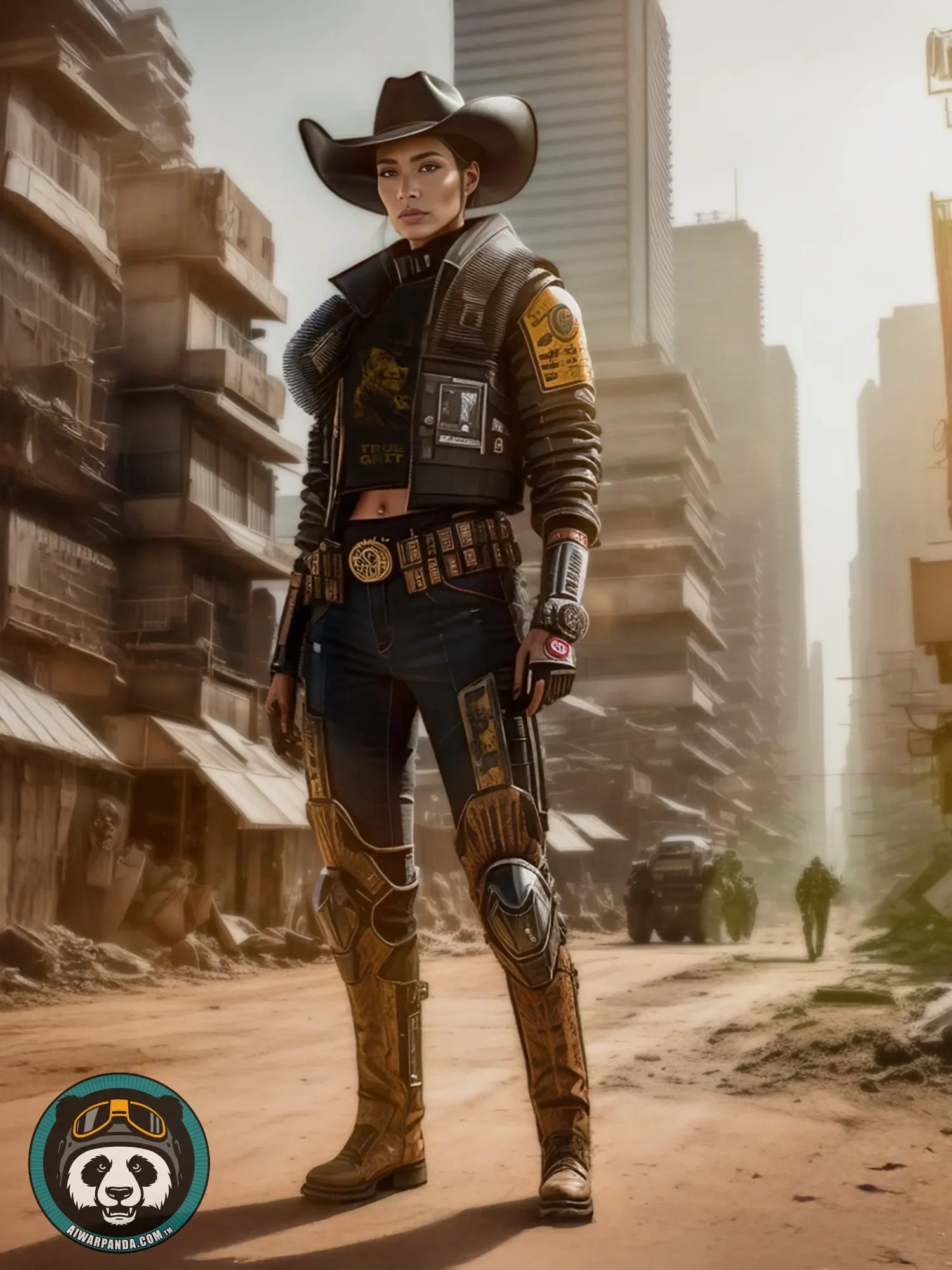The Last Law in Mexico City
Teodora
Sector MC-5, 2079
They still call her La Mujer Policía Enojada.
She doesn’t mind, better angry than dead.
Once, Iztapalapa was a borough of Mexico City a name that echoed with music, murals, and unspeakable violence. Especially for women. Then came the quake of 2069. Concrete turned to sand. Skybridges snapped like breadsticks. Whole blocks slid into sinkholes, dragging a generation with them.
The city didn’t die. It fractured. What’s left is now called Sector MC-5, a stitched-together district of ruins, rebels, refugees and Teodora. She is the Sheriff, the only human one, the only one they need.
Strong, Smart, Unbribable
Respect wasn’t handed to Teodora. She earned it like everything else with scraped knuckles and a backbone of steel. She listened when others barked. Helped when most ran. When her first deputy-bot unit short-circuited mid-raid, she carried the wounded out herself.
And when the local cartels tried to “buy her loyalty” with crypto and chromed-out upgrades?
She politely suggested they donate to the reconstruction fund; they declined.
Two weeks later, Sector MC-5 had one less cartel.
Tools of the Trade
Teodora can’t be everywhere, no one could. So, she’s connected to C.R.I.M.E. (Centralised Response Intelligence for Mexican Enforcement), part of an adaptive global AI linked to every other criminal database from Mexico to Mars Base Beta. It whispers in her ear 24/7, a whisper she sometimes calls her “ugly little angel.”
She commands 20 humanoid deputies who are all tough as nails, smart enough to adapt to local disputes and accents. They patrol on foot, gather data, mediate conflicts, and when necessary? They link into a single kinetic barrier that can stop a mob in its tracks.
Overhead, 300 aerial scouts hover like hawks.
Six are weaponised. She calls them her Bodyguards. They call her Mamá though that’s just what the engineers programmed in.
A Day in Sector MC-5
Today she walks the outer corridor “the blister belt,” they call it, where the quake broke most infrastructure and hope.
She helps fix a drone-rigged water purifier.
She mediates a turf squabble between two rival waste-salvage crews.
She gives half her lunch to a kid who looks like she used to.
Then: sirens. The Bodyguards lock on.
Her HUD lights up. Domestic call. Drugs. Possible hostage.
She doesn’t run. She walks fast.
When she gets there, it’s messier than intel suggested, it always is.
Three suspects, one standoff, her words defuse it.
No bullets fired.
No blood spilled.
Not today.
The Future Isn’t Equal
It still gets to her, the tech’s better, the buildings taller (what’s left of them), but the same tired jokes still follow her down every corridor she patrols.
“Nice boots, Sheriff bet they look better on your bedroom floor.”
“Smile more. You’d crash fewer drones.”
“What’s a girl doing with that many guns?”
She files it away, not forgotten, but not allowed to fester.
When asked about sexism in an article for ‘We are the Law’ magazine June 2079, she said:
Sadly, social progress is still lagging Tech updates. I’m still waiting for the patch that makes us all blind to Gender.”
Despite everything She Keeps Going. There’s no news crew here, no medals, no hashtags trending in her name.
But the locals sleep a little easier, the cartels keep their distance.
And the children of Sector MC-5?
They all want to grow up to be just like her, yes Even the boys.
📌 Want more stories like this? Follow the AI War Panda gang for weekly short tales of cyber-weird futures, cosmic oddities, and a little old-fashioned silliness.
